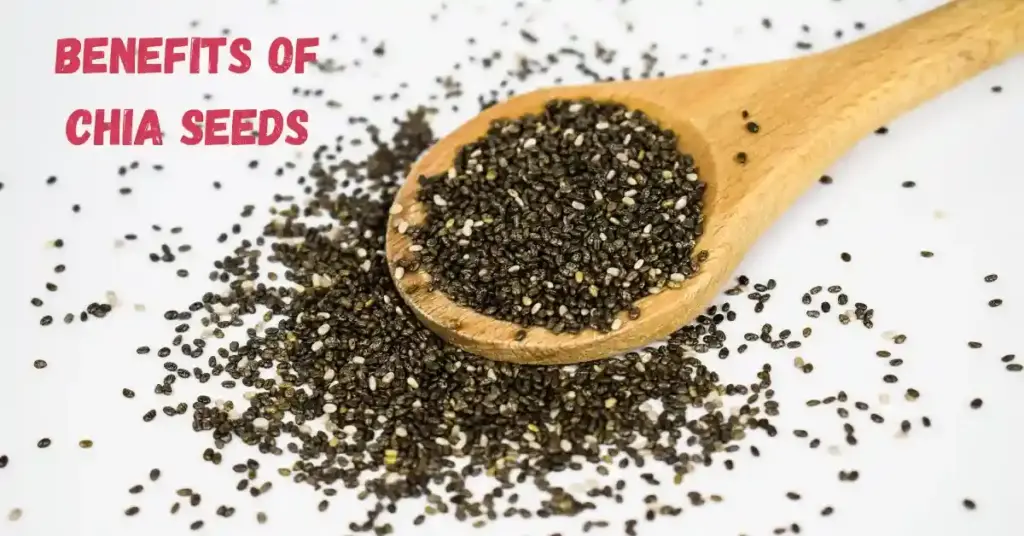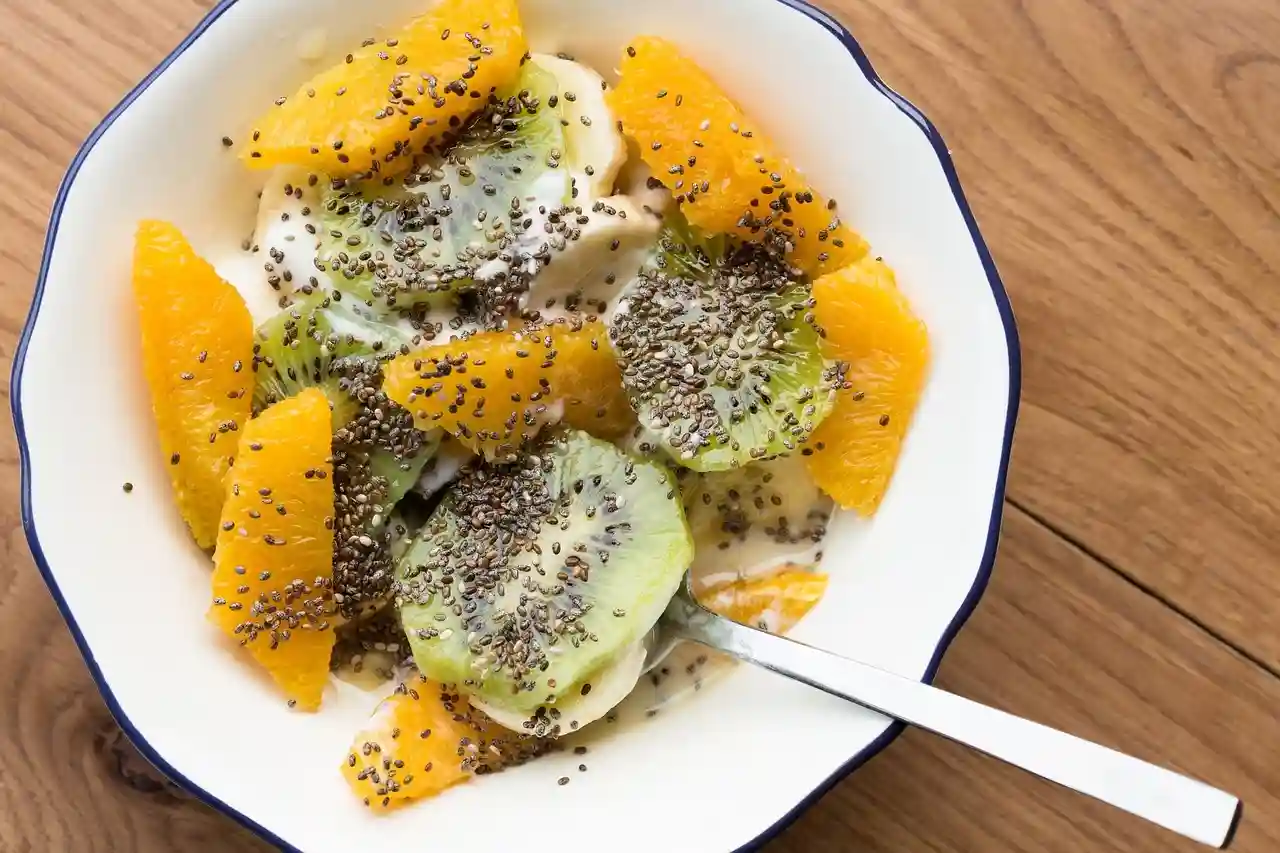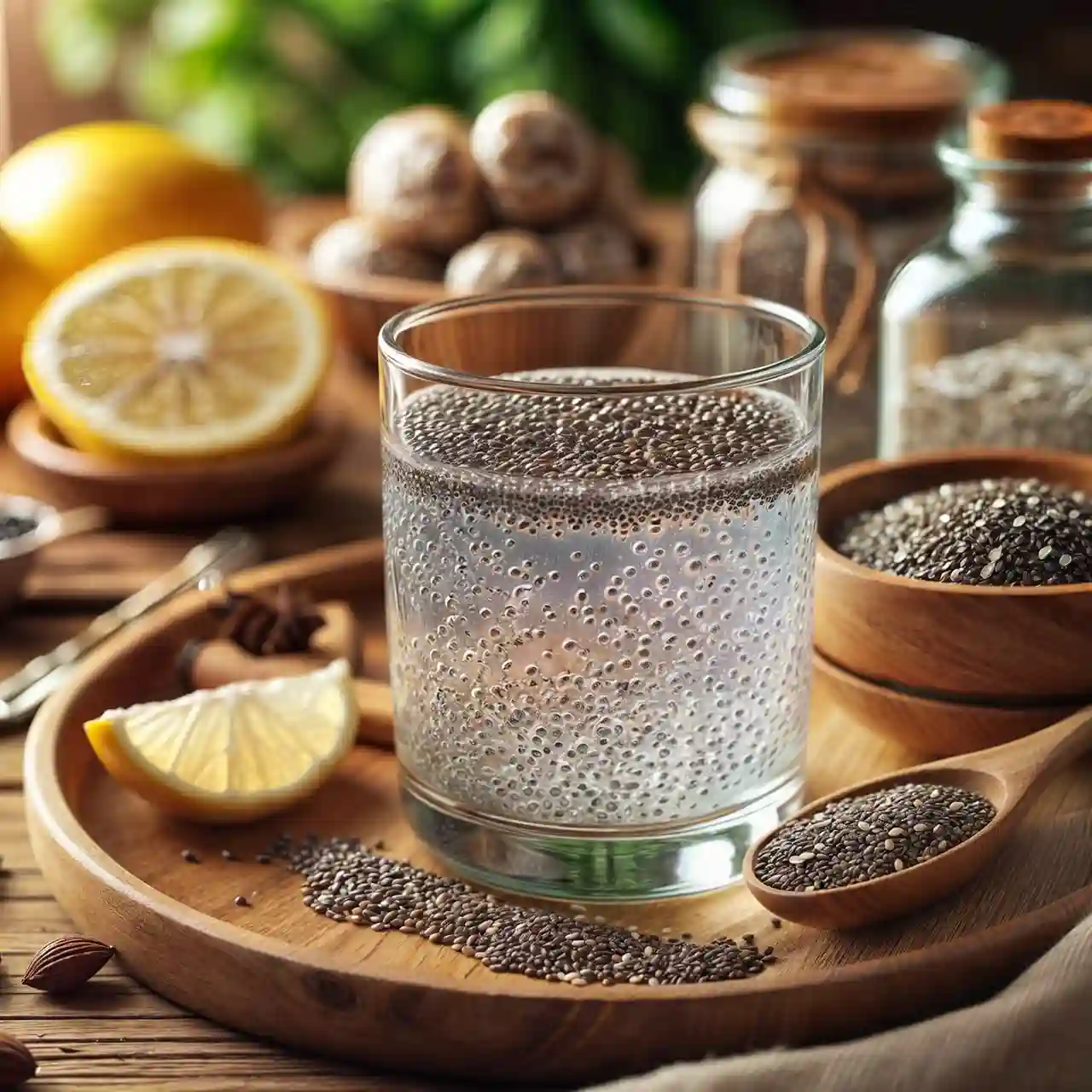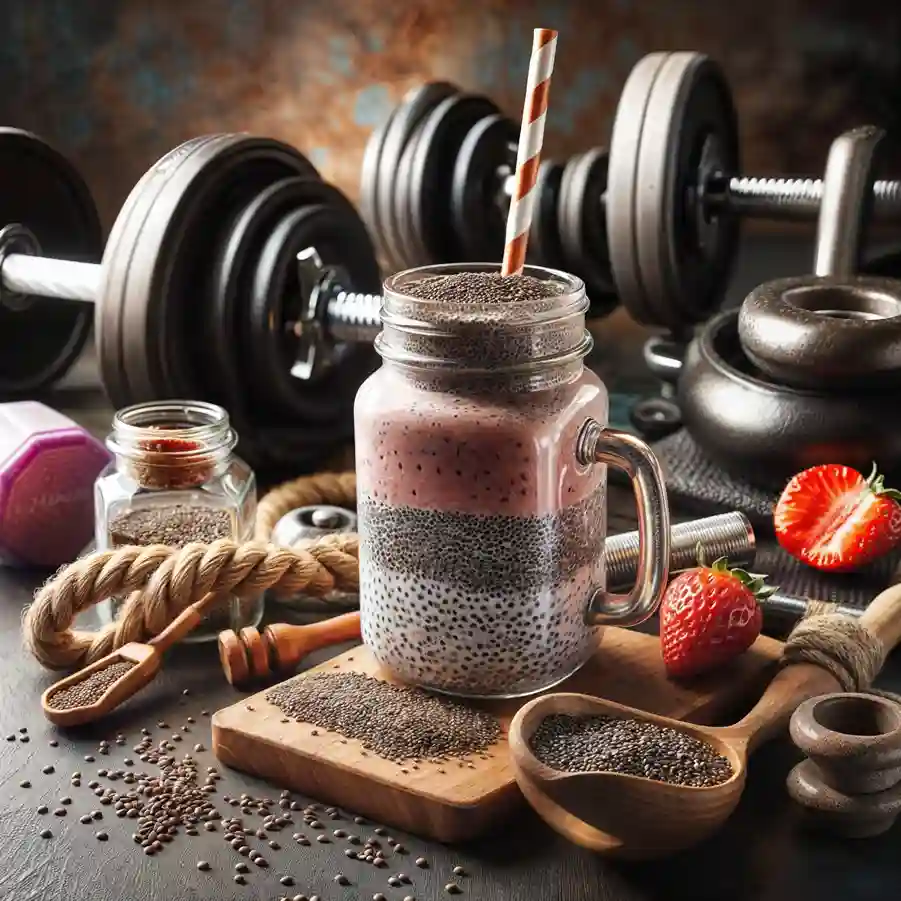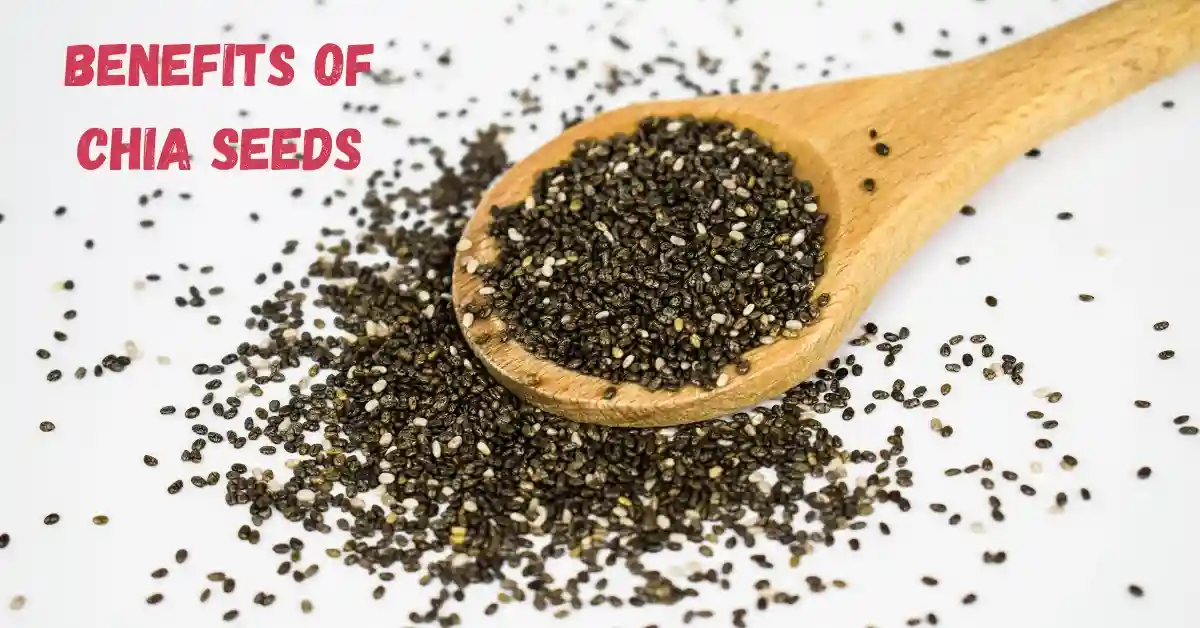Introduction
If you’ve been keeping up with the health and wellness community, you’ve likely heard about the buzz surrounding chia seeds. These tiny black or white seeds, originating from the Salvia hispanica plant, have gained immense popularity in recent years, and for good reason. Chia seeds are not only a nutritious addition to your diet but also offer a wide range of health benefits. In this article, we will explore 10 surprising ways chia seeds can transform your health. So, buckle up and get ready to discover why these superfood seeds deserve a permanent spot in your pantry.
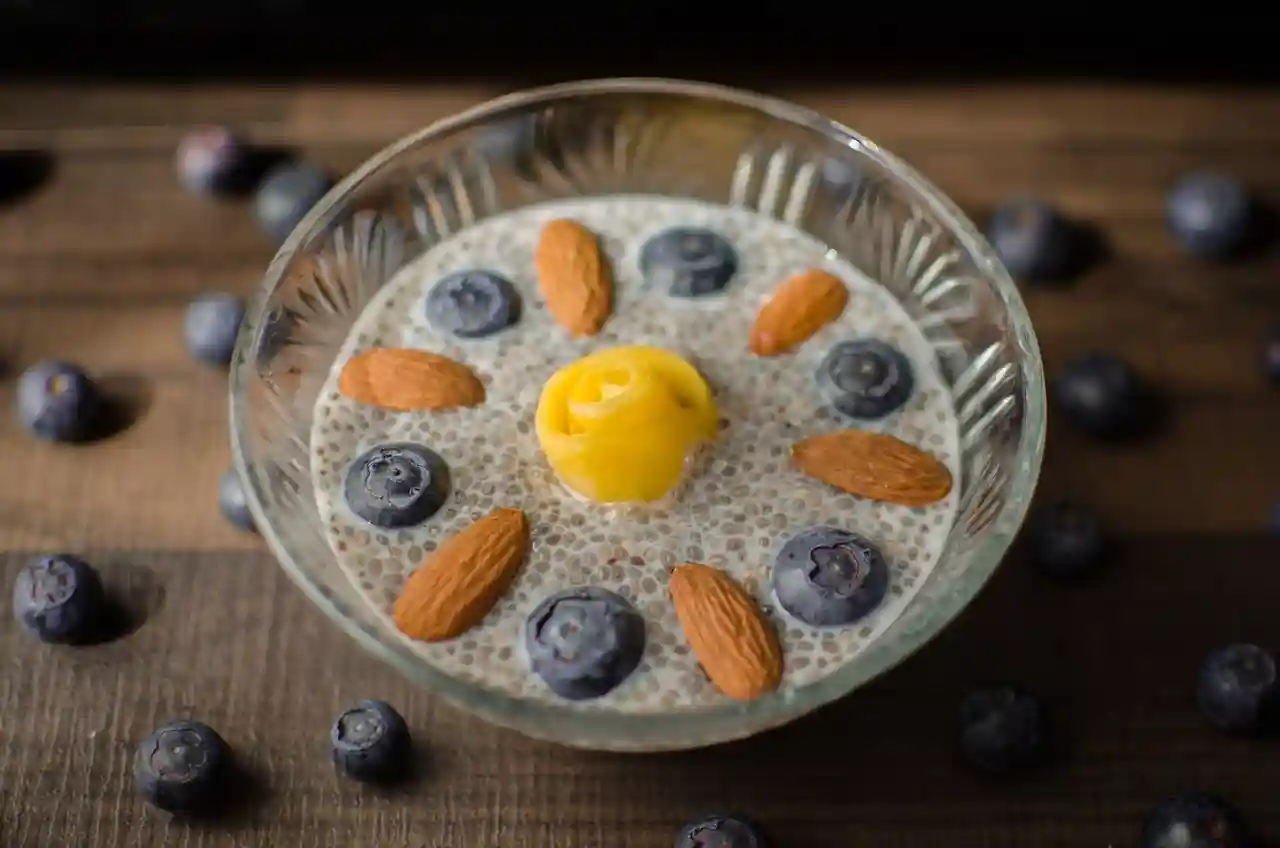
Overall benefits of chia seeds
- Chia seeds are a rich source of fiber, protein, omega-3 fatty acids, antioxidants, and vitamins and minerals.
- They are one of the richest plant-based sources of alpha-linolenic acid (ALA), crucial for heart health and brain function.
- They aid in weight loss and management by promoting satiety through their high fiber and protein content.
- Chia seeds are an excellent source of omega-3 fatty acids, which have numerous benefits for heart health.
- They support healthy blood sugar levels by slowing down glucose absorption and regulating blood sugar spikes.
- Chia seeds contain tryptophan, a compound that increases the production of serotonin, a hormone involved in appetite regulation and mood.
- Chia seeds are packed with antioxidants and anti-inflammatory compounds that can benefit the skin from the inside out.
- They can be used topically for their hydrating and soothing properties, such as making a chia seed face mask.
- Chia seeds are also rich in antioxidants, including flavonoids, which can protect the body from oxidative stress and reduce the risk of chronic diseases.
- They are a plant-based protein source, providing nearly 5 grams of protein per ounce.
- Chia seeds are a great way to keep your digestive system healthy and happy, thanks to their high fiber content which promotes regular bowel movements.
Benefits of chia seeds in water
Chia seeds soaked in water provide several health advantages. Let’s investigate them:
- Hydration and Digestion:
- Chia seeds absorb water, forming a gel-like consistency. This can help you stay hydrated and maintain good digestion.
- Like small tapioca pearls, the gelatinous combination may ease constipation and bloating.
- Weight Management:
- Chia seeds are high in fiber, which promotes fullness and prevents overeating.
- Chia seed water may help you lose weight by curbing your appetite.
- Heart Health:
- Chia seeds include both alpha-linolenic fatty acids (ALA) and fiber.
- ALA helps to decrease cholesterol, regulate heart rhythms, prevent blood clots, and minimize the risk of cardiovascular death.
- Chia seeds are packed with heart-healthy omega-3 fatty acids, making them an excellent choice for supporting your cardiovascular health.
- Blood Sugar Control:
- Chia seeds are advantageous to those with type 2 diabetes.
- Their high fiber content slows digestion and reduces blood sugar rises.
- According to research, chia seeds can help control blood sugar levels.
- Anti-Inflammatory Properties:
- Chia seeds include antioxidants such as caffeic acid, which may have antiinflammatory properties.
- Skin Hydration:
- Chia seeds contain fatty acids, which may help keep skin hydrated.
- While there has been no direct research on the skin benefits of chia seed water, it is a possible bonus.
Remember to consume chia seeds in moderation and see a healthcare expert if you have any special health problems.
Chia seeds benefits for men
Chia seeds have several health advantages, and men may add them into their diet to improve general well-being. Here are some particular benefits:
- Heart Health:
- Chia seeds contain omega-3 fatty acids, which help decrease inflammation, regulate blood pressure, and maintain healthy cholesterol levels.
- These heart-protective qualities together lower the risk of cardiovascular disease.
- Muscle Building and Maintenance:
- Chia seeds are an excellent natural source of protein for fitness enthusiasts.
- Protein content, when paired with regular exercise, promotes muscle development and repair.
- Sustained Energy:
- Chia seeds are beneficial for prolonged energy because of their high fiber and protein content.
- They are an excellent supplement to pre-workout meals, fuelling sessions and increasing endurance.
- Hormonal Balance:
- Chia seeds contain zinc, an important element for men’s testosterone levels.
- Balanced testosterone promotes muscular mass, bone density, and general vitality.
- Bone Health:
- Chia seeds include essential nutrients such as calcium and phosphorus, both of which help to maintain healthy bones.
- As men age, this becomes increasingly crucial in preventing illnesses such as osteoporosis and fractures.
- Digestive Health:
- Chia seeds are high in fiber, which helps with digestion and promotes regular bowel motions.
- A healthy digestive tract is essential for nutrition absorption and general well-being.
- Weight Management:
- Chia seeds include fiber, protein, and healthy fats, which contribute to sensations of fullness and satisfaction.
- Men can control their weight by limiting overeating and unhealthy snacking.
- Blood Sugar Regulation:
- Chia seeds’ soluble fiber content helps to regulate blood sugar levels, lowering the risk of type 2 diabetes.
- This advantage is especially noteworthy for males who are more likely to develop diabetes.
Remember to integrate chia seeds into your diet for maximum health benefits!
Chia seeds benefits for women
Chia seeds are a genuine superfood, providing several health advantages to women. These small seeds, originating from the plant Salvia hispanica, have been used for ages and served as a staple diet for ancient civilizations such as the Aztecs and Mayans. Let’s look at some of the science-backed health advantages of chia seeds, particularly for women:
- Excellent Source of Nutrients:
- A single ounce (28 grams, or around 2 teaspoons) of chia seeds offers a remarkable quantity of nutrients:
- Fiber: 11 grams
- Protein: 4 grams
- Healthy Fats: 9 grams (including 5 grams of omega-3s)
- Calcium: 18% of the Recommended Daily Intake (RDI)
- Manganese: 30% of the RDI
- Magnesium: 30% of the RDI
- Phosphorus: 27% of the RDI
- Chia seeds are also good sources of zinc, vitamin B3 (niacin), potassium, vitamin B1 (thiamine), and vitamin B2.
- Chia seeds provide all nine necessary amino acids, making them an important part of women’s diets.
- A single ounce (28 grams, or around 2 teaspoons) of chia seeds offers a remarkable quantity of nutrients:
- High in Antioxidants:
- Chia seeds have high levels of antioxidants, such as quercetin and caffeic acid.
- Antioxidants shield the body from free radicals, reduce the aging process, and help avoid chronic illnesses.
- Quercetin contains anti-inflammatory, antiviral, and anticancer properties, whilst caffeic acid may help prevent diabetes and age-related disorders.
- Weight Management Support:
- Chia seeds are a great addition to your diet if you’re looking to shed some pounds. Their impressive fiber and protein content can really help with weight loss.
- Soluble fiber absorbs water, swells in the stomach, and enhances sensations of fullness, hence reducing calorie intake.
- Chia seeds’ protein content also helps with satiety and appetite management.
- Heart Health Benefits:
- Chia seeds pack a powerful punch as an amazing source of plant-based omega-3 fatty acids!
- Omega-3 fatty acids promote heart health by lowering inflammation, decreasing cholesterol levels, and avoiding cardiovascular disease.
- Bone Health:
- Chia seeds provide vital elements such as calcium, magnesium, and phosphorus.
- These elements are essential for building healthy bones and avoiding illnesses such as osteoporosis.
- Digestive Health:
- Chia seeds include fiber, which promotes regular bowel motions and digestive health.
- Proper digestion is crucial for nutrition absorption and general health.
- Improved Energy and Endurance:
- Chia seeds’ nutritional richness gives long-lasting energy, making them an excellent supplement to women’s diets.
Remember to integrate chia seeds into your meals and reap the health advantages!

Benefits of chia seeds on empty stomach
Chia seeds soaked in water and ingested on an empty stomach provide a variety of health advantages. Let’s look at why this morning habit might be beneficial.
- Digestion and Bowel Movements:
- Chia seeds are high in fiber. When soaked in water, they become sticky and have a gel-like consistency.
- This gel improves digestion by promoting regular bowel movements and reducing constipation.
- Weight Management:
- Chia seeds may absorb enormous amounts of water and expand in the stomach.
- Consuming chia seed water on an empty stomach creates a sense of fullness, which reduces the desire to overeat.
- Heart Health:
- Chia seeds are packed with heart-healthy omega-3 fatty acids, making them an excellent choice for supporting your cardiovascular health.
- These beneficial fats assist to lower bad cholesterol, reduce inflammation, and promote heart health.
- Chia seeds may also assist to manage blood pressure.
- Sustained Energy:
- Their substantial carbohydrate and protein composition gives consistent energy throughout the day.
- Consuming soaked chia seeds can improve endurance during physical activity.
- Bone Health:
- Chia seeds provide vital elements such as calcium, magnesium, and phosphorus.
- These elements are essential for building healthy bones and avoiding illnesses such as osteoporosis.
- Blood Sugar Regulation:
- Chia seeds can help manage blood sugar levels, particularly in those with type 2 diabetes.
- They delay the conversion of carbs to sugar and increase insulin sensitivity.
- Reduced Inflammation:
- Chia seeds are high in antioxidants, including flavonoids and phenolic acids.
- These antioxidants assist to lessen inflammation in the body.
- Brain Health:
- Chia seeds contain omega-3 fatty acids, which help to preserve brain health and cognitive function.
Incorporating chia seeds into your morning routine can improve your general health, promote hydration, and deliver a steady boost of long-lasting energy. Cheers to a healthy beginning!
Chia seeds benefits and side effects
Chia seeds are a renowned superfood that is high in nutrients and offers several health advantages. Let’s weigh the benefits and possible downsides.
- Health Benefits of Chia Seeds:
- Nutrient Powerhouse: Chia seeds are a nutritional powerhouse, containing plenty of fiber, protein, healthy fats, and minerals. Did you know that just one ounce (28 grams) of chia seeds contains up to 42% of the daily required fiber, along with essential nutrients like phosphorus, magnesium, calcium, and omega-3 fatty acids?
- Heart Health: Chia seeds are one of the most effective plant-based sources of omega-3s. These fatty acids help raise “good” HDL cholesterol, lower “bad” LDL cholesterol, lower blood triglycerides, and reduce inflammation.
- Weight Management: Chia seeds, due to their fiber content, produce a sensation of fullness and may help with weight loss.
- Antioxidants: Chia seeds are high in antioxidants, which help protect against oxidative stress and lower the risk of chronic illnesses.
- Side Effects and Considerations:
- Digestive Issues: Chia seeds are a rich source of fiber, with 11 grams per 1-ounce meal. However, too much fiber can induce gastrointestinal discomfort, constipation, diarrhea, bloating, and gas. Adequate hydration is vital for avoiding pain.
- Allergies: While rare, allergic responses to chia seeds are possible, particularly in people who are sensitive to sesame.
- Medication Interactions: Chia seeds may interact with some drugs. If you are on medication, ask your doctor before drastically increasing your chia seed consumption.
- Choking Hazard: Chia seeds absorb moisture, resulting in a gel-like consistency. If not adequately moistened, they can cause choking hazards, especially if taken dry.
- Prostate Cancer Risk: According to some research, eating too much chia seeds may raise your chance of developing prostate cancer. However, we need to conduct more research to validate this.
To summarize, eat chia seeds in moderation as part of a healthy diet. They provide several health advantages, but it is essential to be aware of potential side effects and individual needs.
Incorporating Chia Seeds into Your Daily Routine
Now that you’re convinced of the incredible benefits of chia seeds, you might be wondering how to incorporate them into your daily routine. The great news is that chia seeds are incredibly versatile and can be added to a variety of dishes. Here are a few ideas to get you started:
- Sprinkle them over your morning oatmeal, yogurt, or smoothie bowl.
- Add them to baked goods like bread, muffins, or energy bars for an extra nutritional boost.
- Use them as a vegan egg substitute by mixing 1 tablespoon of chia seeds with 3 tablespoons of water and letting it thicken.
- Make a refreshing chia seed pudding by soaking the seeds in plant-based milk overnight.
- Sprinkle them on top of your salads or grain bowls for an extra crunch!
Remember, it’s best to start with small amounts and gradually increase your intake to avoid any potential digestive discomfort.
How to use chia seeds
Chia seeds are extremely adaptable and simple to integrate into your diet. Here are some tasty and healthful ways to utilize them.
- Chia Water:
- Soak 1/4 cup (40 g) of chia seeds in 4 cups (1 liter) of water for 20 to 30 minutes.
- Add diced fruit or citrus (lemon, lime, or orange) for flavor.
- Juice-Soaked Chia:
- Soak 1/4 cup (40 g) chia seeds in 4 cups (1 liter) of 100% fruit juice for 30 minutes.
- Limit your intake of juice due to its high sugar content.
- Chia Pudding:
- Combine chia seeds with juice or milk (adding flavors such as vanilla or chocolate).
- Allow the liquid to soak until it thickens and resembles pudding.
- Blend if you want a smoother finish.
- Chia in Smoothies:
- Make sure to soak the chia seeds before adding them to your smoothie for the best results!
- Soaked seeds form a gel-like consistency.
- Raw Chia Toppings:
- Sprinkle ground chia seeds over smoothies, oatmeal, or yogurt.
- Chia Cereal:
- Soak chia seeds in milk overnight (or a milk alternative, such as almond milk).
- Garnish with nuts, fruit, or spices such as cinnamon.
- Chia Truffles:
- Make no-bake chia truffles with dates, chocolate, and oatmeal.
- In Stir-Fries:
- Mix a spoonful (15 grams) of chia seeds into savory recipes like stir-fries.
- Salad Toppings:
- Sprinkle chia seeds over salads to add texture and nutrients.
- Salad Dressing:
- Add chia seeds to your homemade salad dressing.
Remember that chia seeds absorb liquid, so alter the ratios to your preferred consistency. Enjoy these little powerhouses in a variety of ways!
Dangers of chia seeds (Potential Risks)
Chia seeds are a renowned superfood that is high in nutrients and offers several health advantages. However, like all foods, they should be taken in moderation. Here are some potential adverse effects and precautions regarding chia seeds:
- Digestive Issues:
- Chia seeds are high in fiber, with 11 grams per 1 ounce (28 gram) serving. While fiber is necessary for digestive health, an excessive amount can induce stomach discomfort, constipation, diarrhea, bloating, and gas1. To minimize discomfort, fiber ingestion should be balanced with proper water.
- Individuals with inflammatory bowel illnesses (such as ulcerative colitis or Crohn’s disease) should decrease their fiber intake and chia seed consumption during flare-ups.
- Allergies:
- Although rare, there have been reports of allergic responses to chia seeds. Cross-sensitization may develop in those with a sesame allergy, resulting in allergic reactions after eating chia seeds.
- If you have known allergies, it is critical to use caution while introducing new foods into your diet.
- Blood Sugar and Diabetes:
- Chia seeds’ high fiber content may help reduce blood sugar levels. However, for diabetics, this impact may necessitate insulin dosage modifications.
- If you have diabetes, talk to your doctor before dramatically increasing your chia seed diet.
- Blood Pressure:
- Chia seeds have high levels of omega-3 fatty acids, which may help decrease blood pressure. However, further study is required to validate this impact.
- If you are on blood pressure medication, keep track of your readings and communicate with your doctor.
- Weight Gain:
- Chia seeds are nutrient-dense, yet eating too much might lead to weight gain. Remember that they are high in calories, therefore portion management is important.
In result, chia seeds have several health advantages when ingested in moderation. Be aware of your own health issues and seek medical advice if you have any concerns. Consume chia seeds as part of a healthy diet!
Conclusion
Chia seeds are truly a gift from nature, packed with an impressive array of nutrients and health benefits. From supporting weight management and cardiovascular health to regulating blood sugar levels and nourishing your skin, these tiny seeds pack a mighty punch.
By incorporating chia seeds into your daily routine, you’re not only adding a nutritious and delicious ingredient to your meals but also investing in your overall well-being. So, what are you waiting for? Embrace the power of chia seeds and experience the transformative effects they can have on your health and vitality.
Remember, small changes can lead to big results, and adding chia seeds to your diet is a simple yet impactful step towards a healthier, more vibrant you!
FAQs:
How many chia seeds are safe to consume each day?
There is no one-size-fits-all recommendation for daily chia seed consumption, as individual needs may vary. However, most experts suggest starting with 1-2 tablespoons (around 15-30 grams) of chia seeds per day and gradually increasing the amount based on your tolerance and desired benefits. It's essential to drink plenty of water when consuming chia seeds to aid in digestion and prevent potential side effects like constipation.
Can chia seeds help with weight loss?
Yes, chia seeds can be a valuable addition to a weight loss diet. Their high fiber and protein content can help promote feelings of fullness and satiety, potentially leading to reduced calorie intake and weight loss over time. Additionally, the soluble fiber in chia seeds may help regulate blood sugar levels, which can prevent cravings and overeating.
Are chia seeds safe for people who have nut allergies?
Chia seeds are not technically nuts; they are the edible seeds of the Salvia hispanica plant, which is part of the mint family. However, some individuals with nut allergies may also be sensitive to chia seeds due to potential cross-reactivity. If you have a severe nut allergy, it's best to consult with your healthcare provider before introducing chia seeds into your diet.
Can chia seeds be eaten raw, or must they be cooked?
Chia seeds can be consumed both raw and cooked. In fact, many of the health benefits of chia seeds can be obtained by consuming them raw, as the nutrients remain intact. However, cooking or baking with chia seeds can also be beneficial, as the heat can help release additional nutrients and make them more bioavailable.
Can chia seeds interact with any medications?
Due to their high fiber content, chia seeds may potentially interact with certain medications by affecting their absorption or altering their effects. For example, chia seeds may interfere with the absorption of diabetes medications, blood thinners, or certain supplements. Before adding chia seeds to your diet, it's a good idea to check with your healthcare provider, especially if you are taking any prescription medications.
